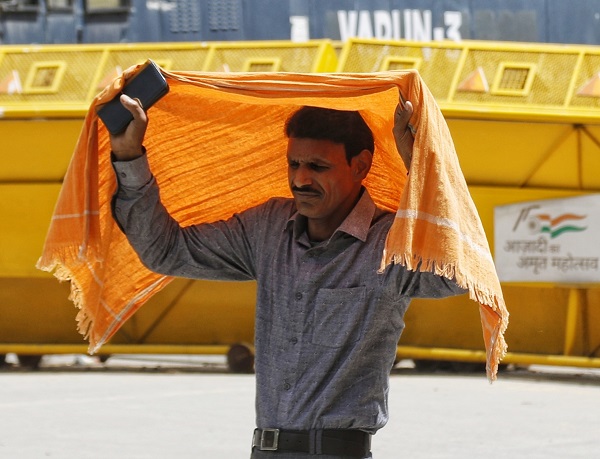
New Delhi, (Asian independent) The 2022 heatwave is estimated to have led to at least 90 deaths across India and Pakistan, a first attribution study that looks specifically at the recent spells of heatwaves across northwest India and southeast Pakistan and quantifies the influence of climate change said on Monday.
The number is not from any official records, the study said, adding, it is based mostly on media reports.
“In Pakistan and India, extreme heat hits hardest for people who must go outside to earn a daily wage (e.g. street vendors, construction and farm workers, traffic police), and consequently lack access to consistent electricity and cooling at home, limiting their options to cope with prolonged heat stress,” climate scientists who carried out the study said.
Rising temperature from more intense and frequent heatwaves will render coping mechanisms inadequate as conditions in some regions meet and exceed limits to human survivability, the study said. However, when asked about the source of the number, one of the scientists, Aditi Kapoor from Red Cross Red Crescent Climate Centre, The Hague, Netherlands, said, “These are based mostly on media reports. There are no official records as yet. And in many cases, there is no direct mention of ‘heat stroke’ as a cause of death but for a person with certain physical ailments, his or her condition is aggravated resulting in death due to heat waves.”
“Mitigating further warming is essential to avoid loss of life and livelihood,” the multi-author team of scientists said.
The team also stressed on the benefits of adaptation. “While some losses will inevitably occur due to the extreme heat, it is misleading to assume that the impacts are inevitable. Adaptation to extreme heat can be effective at reducing mortality.”
Heat Action Plans that include early warning and early action, awareness raising and behaviour changing messaging, and supportive public services can reduce mortality, the study said, adding, India’s rollout of these has been remarkable, now covering 130 cities and towns.
Ahmedabad’s Heat Action Plan has been a success and employed several practices including replacing tin or steel sheets on low income housing/shanties with eco-friendly, sturdy material, covered with greens or painted white that has resulted in definitely lesser heatwave impact and thus saved lives. “This success has inspired 130 cities and towns to go for Heat Action Plans,” she said.







